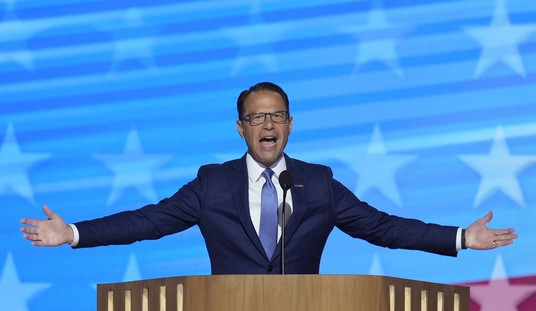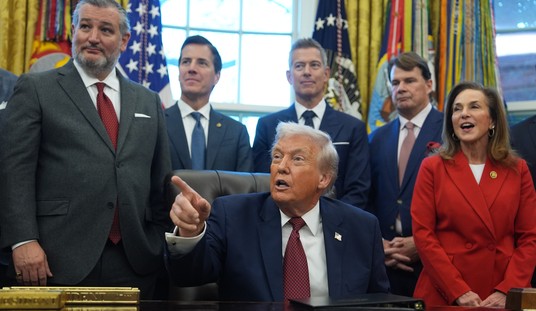Indeed, “On Schedule” appears to be the rousing tag line of a new advertising strategy. Sarah Kliff, the Washington Post‘s reporter on Obamacare implementation, who is somewhat more favorably disposed to it than I, nonetheless calls this newly released video from Health and Human Services what it is: “From the department of lowered Obamacare expectations: This video.”
Health and Human Services tweeted some exciting news this morning: the health-care law is on schedule! And the agency has a video to prove it[.]
Notably absent from the video is any mention of the employer mandate and small business health exchange, both of which have not moved ahead on schedule.
This isn’t the most rah-rah of political messages; on-time doesn’t necessarily suggest hope and change. It’s not a video that would even get produced if everyone expected that the law would roll out on time.
The video bullet points some of the alleged progress along the way to Obamacare’s full implementation, including hilariously a “new, simpler health insurance application,” which was just a necessary replacement for the terrible, complicated one HHS first created. The list also includes a central web portal for assistance for a federal exchange that doesn’t yet exist, so hard to know if that works as envisioned, and $150 million in grants for outreach, with more in the pipeline. Sending money out the door on schedule does not, of course, mean that money will accomplish what it’s meant to accomplish. As Kliff notes, the employer mandate, small business exchange, and verification glitches go unmentioned, so Health and Human Services is proclaiming they’re on schedule with the elements of the law that aren’t the ones that aren’t on schedule. And, they’re going to be on schedule with the exchanges, they swear. They’ll be “open for enrollment,” which is a pretty low bar, too.
One of the things that could have helped the government with its technological heavy lift in launching all these exchanges— a Travelocity for health care, as they touted it—would have been partnering with private companies that already specialize in selling insurance online. They’ve been doing it for years, and have a vested interest in helping Obamacare enroll the uninsured because it means more business for them. That won’t be happening:
Less than 90 days before Obamacare’s government-run health exchanges are due to open up shop, Web insurers are still being locked out of helping sign up uninsured individuals—a lag that threatens to depress enrollments, and jack up insurance rates, experts tell CNBC.
Those experts warned that if dozens of Web-based markets—which already sell insurance online—continue to be shut out of partnering with government exchanges, it could lead to 1 million or more people failing to sign up for insurance under Obamacare.
And, they cautioned, the delay may signal that some of the exchanges won’t be ready for business by the official Oct. 1 target date.
One of the CEOs of these companies, who was a supporter of the bill (as mentioned above, forcing people to buy insurance is potentially very profitable for his company):
“I’m just totally mystified, puzzled, flummoxed as to why the administration isn’t using somebody like me to help,” said eHealth CEO Gary Lauer, whose company is a leading industry player among a dozen or more Web-based markets that have sought to partner with various government exchanges.
Lauer noted that he had been an enthusiastic supporter of the new health law championed by President Barack Obama. But the stone-walling, foot-dragging and other inexplicable hurdles that he says his company has faced in offering subsidized insurance under that law has made him increasingly skeptical of the plan.
“I’m still a supporter of the legislation, I’m dubious of its chances for success,” Lauer said.
We’re all skeptics now, it seems. California’s and New York’s exchanges have both said they won’t be working in partnership with private companies, not necessarily because they don’t want to, but because they’re just not technologically capable of it:
New York State revealed to CNBC on Friday that it has also decided, for now, not to allow the Web-based entities to partner with its exchange. “For the 2014 enrollment process, it’s not feasible to include the Web brokers,” said New York Exchange spokesman Bill Schwarz.
He cited logistical hurdles including ensuring Web marketplaces offer all of the plans available on the state exchange, and creating the technical interface between the exchange and Web sites.
Schwarz—who noted the “tight deadline” to open the exchange—said New York will continue considering whether to use Web marketplaces in coming years.
Private companies, who actually know how much work it takes to be an online health insurance vendor for millions of Americans think the inability to partner with them may be the technological canary in the coal mine:
Cohen, the Liazon executive, said, “I think this is an indicator, a leading indicator, of the exchanges lack of readiness to do the things they actually need to do.”
“Their ambiguity on Web-based entities is probably an indication that the don’t have their act together, so to speak, and they’re probably thinking they’ve got bigger issues than this, and that’s kind of scary, no?” Cohen said.







Join the conversation as a VIP Member